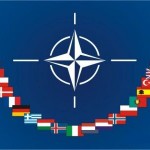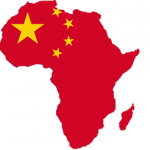“NATO’s Role and Relevance in Post-Conflict Reconstruction and Challenges in Implementing the Comprehensive Approach” by Kapok Tree Diplomacy
PREVIEW to follow. Includes a Table of Contents. Complete essay is 5,821 words, 22 pages double-spaced, 60 references
Section One – NATO – Brief History and Background
Pre Cold War. Hoehn and Harting note that increasing tensions with the Soviet Union over its Berlin Blockade (1948), China’s “short-lived embrace of Moscow” (5), and Communist incursions in Czechoslovakia and Korea led the United States, Canada and ten other Western European states to form NATO as a defensive alliance and formulate a policy of Soviet “containment” designed to “keep the Americans in, the Russians out, and the Germans down” in April of 1949 (8). Despite occasional disagreements over burden-sharing and a dust-up with France, alliance members “deterred the Soviets, and integrated Germany into a collective defense system for the West” over the next 40 years (Duignan 43), moving from a posture of deterrence to détente in a manner consistent with its values of “democracy, individual liberty and the rule of law” (NATO “Treaty”). 
Post Cold War. NATO’s success with facilitating European integration and deterring the Soviet threat was rewarded with the fall of the Berlin Wall (1989) and the dissolution of the Warsaw Pact and Soviet Union in 1991 (Medcalf 196-197), as NATO “found itself without an enemy” for the first time in its history, earning a “bloodless victory … without firing a shot” (Duignan 46, 48). The collapse of the Soviet Union encouraged NATO to enlarge its membership into Eastern Europe (1999) and launch the Partnership for Peace (PfP) for military cooperation and dialogue with non-NATO states (1994) despite lingering doubts regarding NATO’s post-Cold War purpose and identity (Duignan 58). Read more





International and Regional Mechanisms for Holding Human Rights Offenders Accountable
“International and Regional Mechanisms for Holding Human Rights Offenders Accountable” by Kapok Tree Diplomacy
PREVIEW [Includes Table of Contents] Full essay is 2,825 words. 10 pages double-spaced. 12 references
Section One – United Nations Charter-Based and Treaty-Based Bodies
Charter-Based Institutions. These institutions include the UN General Assembly (GA), the UN Security Council (UNSC), the International Court of Justice (ICJ), the Human Rights Council (HRC), and other authorized bodies created by them such as the Commission on the Status of Women (CSW) (Steiner, Alston & Goodman (SAG) 737). “The single most important contribution made by the Charter-based bodies … has been through the elaboration of an ever-growing body of standards designed to flesh out … the norms enunciated in the Universal Declaration” (SAG 742). Each institution differs in its accountability processes. Read more
Share this:
Like this: